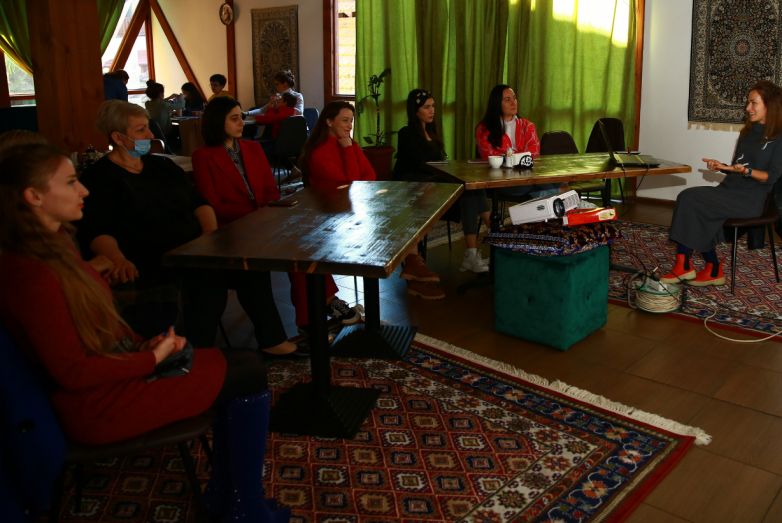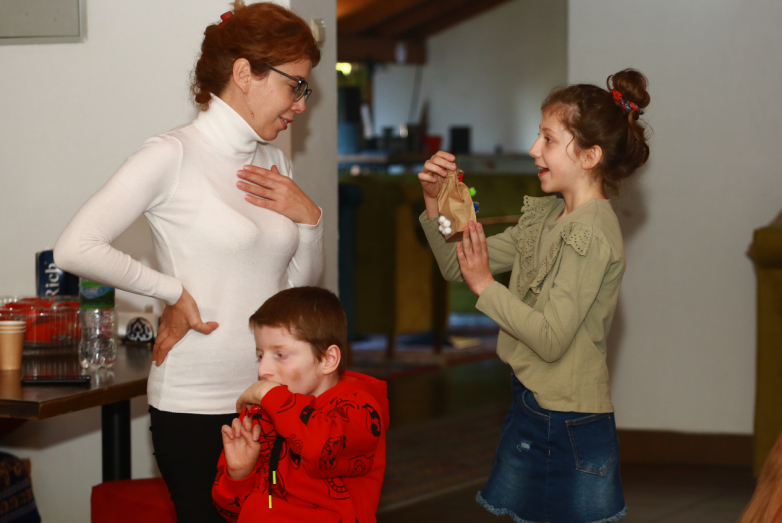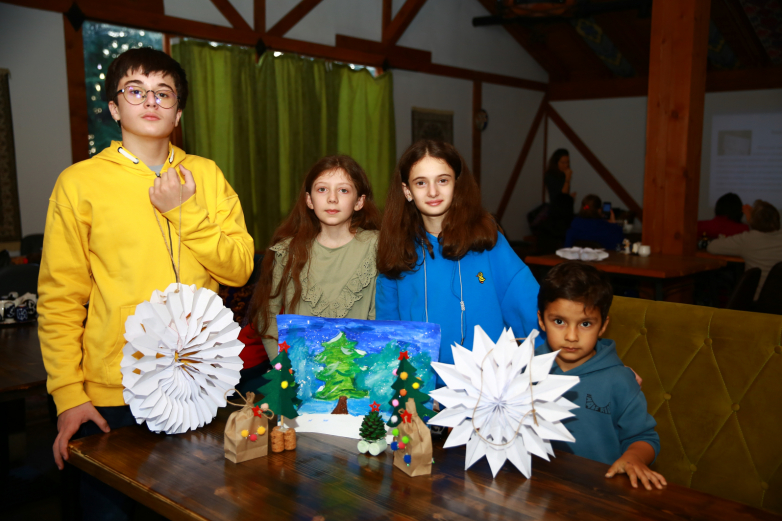The WAC continued the cycle of meetings of the Parents' Club in Gagra. This time, within the framework of the meeting, its participants discussed age-related crises among children and talked about how to build interaction with a child.
Kamila Kirwal
The World Abaza Congress continued the field meetings of the Parents' Club in Gagra. The Club meeting in early December was dedicated to age-related crises in children.
The work of the Club was divided into two "flanks" - "women" and "children". A special lesson was planned for the children, while experienced mothers and young women who are just preparing for motherhood talked with psychologist Elana Kortua at the "women's" playground.
Representative of the Congress Izolda Khagba shared her joy that she again had the opportunity to meet the guests of the first meeting, who had already brought their friends to the second meeting.
"Today our parents and psychologist Elana Kortua touched upon a very important topic - psychological crises in children at different ages. This topic has interested many parents. Some of those present have three or four children, and they can compare the psychological development of each of their children, certain difficulties. Everyone is well aware that at the age of three, at seven and at fifteen, a child manifests various psychological crises, which are reflected in his behavior," Khagba recalled.
It is not the first time that psychologist Elana Kortua speaks to the audience of the WAC Parents' Club. Meetings with her always arouse great interest and many questions from parents.
"As you noticed, parents are involved in the discussion, they talk, ask questions, they are interested. It is very pleasant that they have a heightened interest in the issues of upbringing, development of children, interaction with their children. Such a keen interest is what inspires and makes me happy," the psychologist shared.
Elana Kortua added that this is why it was easy for her to have a conversation with the participants of the meeting.
Piruza Lobyan is a mother of four children and a grandmother of two grandchildren. Piruza's youngest daughter, Camila, is handicapped. The adults in the family do not give up on her.
"My children have grown up, but by the example of my grandchildren, I begin to 'live anew', I remember all the stages of [children's] development. I made a lot of conclusions today. Children with disabilities are teaching [the family] to live and see life differently. No matter how strong a person is, such meetings need to be held, because for parents it is a big relief," Piruza Lobyan shared.
At the meeting of the Club there were mothers who have good understanding of age crises. One of them is a regular guest of the WAC Parents' Club in Gagra, the mother of two children, Mira Pichugina. She believes that, despite all the knowledge in this area, it is important to use the opportunity of personal communication with specialists.
"No matter how informed we are, when such live meetings are held, this is an exchange of experience, and Elana is also incredibly pleased to listen to, this is a very interesting format. Once again I was convinced that there are no specific instructions for parents on how to "survive". I was convinced that a crisis is normal, that there is no need to worry that this is a natural process of a child's development. If hysteria is normal, you just need to look at it as positively as possible," Pichugina shared her impressions.
During a lively discussion between parents, their children developed their thinking and chromatics on the playground. Art therapist Tina Chkhaidze worked with them to train the correct perception of color; in an impromptu creative workshop, children developed the ability to perceive, identify and name colors.
11-year-olds Illaria Khagba and Samira Ketsba conveyed their mood through crafts.
"Today we made beautiful Christmas trees and snowflakes, we are still in the process. I knit, I work with felt, I made snowflakes last year. We take the paper, cut out the edges according to the template, glue it together and when the glue dries up, we open [the craft]," said Illaria.
During the lesson, Samira managed to look after her younger brother Bagrat, a boy with disabilities. Samira said that they get along very well, and the family's common hobby is listening to jazz.
"We just love it, it's our passion. My brother Bagrat, and my older brother, my mother and I love jazz," said the precocious girl.
Summing up the results of the meeting, Izolda Khagba conveyed the parents' impression: such meetings are useful and interesting. The parents expressed a desire to meet at the club as often as possible.
"This is a great achievement and pride for us, because the World Abaza Congress supports projects related to children and their parents," said Khagba.
The next, final this year, meeting of the WAC Parents' Club in Gagra will be held in mid-December.



to login or register.